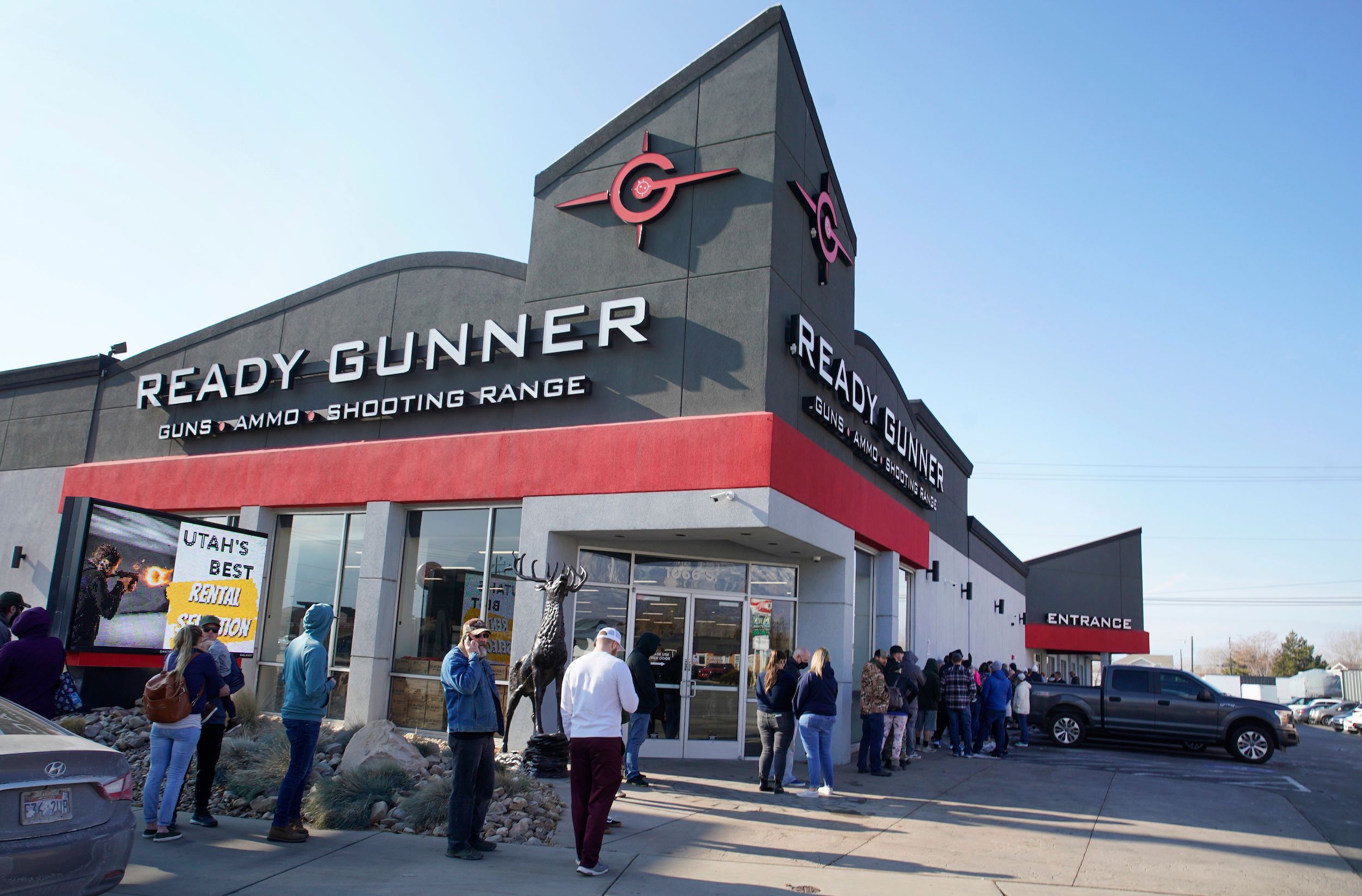We’ve reported before about the pandemic gun surge, in which Americans bought more than 40 million guns in 2020 and 2021, and how it hints at growing concerns about crime and violence, even as many are calling for stricter gun control legislation. A new survey out this week, conducted by the University of Chicago Harris School of Public Policy and The Associated Press-NORC Center for Public Affairs Research, helps us fill in the bigger picture around those two seemingly conflicting trends.
Seventy-one percent of respondents to that survey said gun laws should be stricter, the highest share of support for firearms restrictions since the poll launched in October 2017 and 10 percentage points higher than that year. The desire for more regulations comes as a large share of Americans believe gun violence is a pressing national problem, with four in 10 respondents saying they think it’s at least somewhat likely that they will be a victim of gun violence in the next five years. Younger Americans are more concerned they’ll be shot than are older people, while Black and Hispanic people are more than twice as likely as white people to say they or someone they know have experienced gun violence. At the same time, 60 percent of respondents said it’s important that people can own guns for personal protection, with a slight majority — 52 percent — stressing the importance of both preventing mass shootings and ensuring that people can own firearms for self-defense.
From these answers, the researchers determined that Americans may have a more nuanced opinion of gun violence and policy needs than news media narratives often imply. “They don’t see a direct conflict between protecting gun ownership and implementing policies to prevent gun violence,” David Sterrett, a senior research scientist with The AP-NORC Center, said in a press release.
John Roman, a senior fellow at NORC at the University of Chicago, agrees. “Americans have a more sophisticated take that you see reflected in the political discourse,” he said. “But you also see the fear, which is that Americans are afraid that they’ll be the victim of gun violence, and they want to have their own weapons to defend themselves.”
In March, Roman led a separate NORC survey that found first-time gun buyers during the pandemic — who helped increase gun ownership nationally — were younger, more diverse, and as or more likely than prepandemic owners to support a range of gun rights expansions. But what the March results didn’t explain was whether new gun owners already had those pro-gun rights leanings, or switched views after buying a firearm.
“What this new survey does is it suggests, I think, that the first-time gun owners already shared these views with people who owned guns and so they were changing their gun-owning to reflect their existing preferences, rather than buying a gun and then changing their preferences,” Roman said. “You would expect that if people who didn’t own a gun were changing their policy preferences and then that motivated them to buy a gun, you would be seeing some shift in overall preferences away from gun regulation and toward more unrestricted gun use. And you do not see that in this new survey.”
The results are sure to be good news for gun reform advocates who want to build off the recently enacted Bipartisan Safer Communities Act, the first federal gun legislation in nearly three decades.
But caveats remain. For one, support for restrictions tends to go up in the aftermath of high-profile mass shootings, as we’ve seen since the recent events in Buffalo, New York, and Uvalde, Texas. And then there’s the long history of gun control as a political talking point: The popularity of gun restrictions among voters in general has rarely translated into concrete changes within the political system for a variety of reasons.
Nonetheless, the new survey shows clear support for stricter gun regulations, especially those that limit who can buy firearms, like people with a history of mental health issues. Those respondents who believe gun violence is increasing in their area were also more likely to support gun reforms, even when accounting for political partisanship. It could be, the researchers said, that the prevalence of shootings has reached a new level of saturation in the cultural psyche.
“The poll highlights that gun violence has touched the lives of many Americans, especially Black and Hispanic Americans, and there is significant public concern about this,” Jens Ludwig, a professor at the University of Chicago Harris School of Public Policy, said in a press release. “Despite the polarizing climate surrounding these issues, the poll also reveals strong public support for policies to prevent gun violence.”

